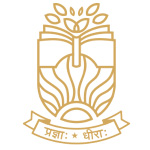For a room with a view at Punjabi University
The alarm goes off at 6 am in the 10ft x 12ft room. It is a new day for three physiotherapy students, Samriti Sharma, Ravneet Kaur and Mamta, who share the room, number 109, in Bibi Sahib Kaur hostel of Punjabi University in Patiala.
“The first thing we do is queue up outside the washroom with our buckets because it is bathing time between 6 am and 8 am. I am lucky that my room is located close to one of the two washrooms on the floor,” says Samriti.
There are 42 girls residing on each floor of the three-storied building that has only two washrooms. This means, at least 21 girls use one washroom. It’s a “fight for survival” in the morning with grumpy faces, tempers running high, angry sounds and banging on doors to make people hurry up.
Earlier this month, left-leaning student bodies sat on a 25-day strike, demanding round-the-clock open girls’ hostels on the campus. The protests witnessed two violent clashes, dharnas and incidents where women broke the gates of their hostels and slept outside.
The authorities, who had refused to hold talks with the students, finally gave in and reached an understanding under which curfew timing was moved by an hour from 8 pm to 9 pm. The size of the rooms and the space crunch inside the hostel are an indication of why the students want more outdoor time.
Bibi Sahib Kaur is one of the two oldest girls’ hostels on the campus. A combination of red brick and white paint, the rooms are built around two large courtyards with plenty of sun and greenery on the inside.
The room holds a double bed, a study table, a chair and a cupboard: all are shared by three girls. There is only room enough to move around between the furniture and a window overlooking the hostel warden’s manicured garden. A floral wallpaper covers part of the walls while someone has scribbled ‘Be Happy’ on the switchboard in white ink.
“I am the one who sleeps in the middle of the bed. Earlier, it was slightly uncomfortable because of the partition but now I’m used to it,” 20-year-old Samriti says.
It’s a good thing, Samritis adds, that she gets along well with her roommates. They are all fourth-year students of the Bachelor of Physiotherapy course. Samriti is a native of Abohar, her father is in agriculture and mother a homemaker. She has a younger brother who is studying BCom and preparing for the Common Proficiency Test (CPT).
Breakfast at the hostel mess begins at 8.15 am and ends at 9.30 am. The corridors have speakers that are used for making meal announcements. On this day, she has skipped hostel lunch to have fried rice at Gol Market. Samriti says she does not eat too much of the hostel food which is dal (rajma, chana, kadhi) with rice or roti along with salad for lunch, dry vegetable and roti for dinner. She likes eating outside. And she always has a stash of homemade snacks ready for an emergency.
Roommate Mamta says she had to have stones removed from her gall bladder when she was in the second year, and the “oily food” has not helped her follow her doctor’s diet advice. While the lunch and dinner are charged as part of a single diet costing Rs 27, breakfast, tea and snacks are charged separately according to MRP on the monthly mess bill. The girls pay Rs 2,135 as hostel fee along with approximately Rs 3,000 as the mess bill per semester.
Samriti says the hostels at the university are overcrowded because the demand is high and fee is low. Otherwise, three girls would not be living in a room meant for one. Two students are allotted a hostel room on merit basis. But unlike up to last year when it was compulsory to allot a third roommate, this year the university took students’ consent for the same.
Her classes begin at 2 pm while the morning half is devoted to OPD. “I return to the hostel during lunchtime for some rest. From 2 pm to 5 pm, we have classes. Then we have the rest of the evening free,” says Samriti, who is resting her back against a mound of pillows and blankets.
A skeletal black kitten is mewing outside her door, but it quickly darts when her roommate Ravneet approaches the door at 1.30 pm. She enters the room, removes her backpack and white coat, and takes a change of clothes to the washroom. Fifteen minutes later, their roommate Mamta joins them and is discussing whether their professor will take the afternoon classes or not.
“It’s not just kittens and dogs, there are at least 15 monkeys in our hostel who come once in the morning during breakfast and then in the evening at 5. They fish around in the dustbins, make swings out of the towels that have been hung out to dry and even wear some of our clothes from time to time,” Ravneet laughs.
Samriti and Mamta are active in student politics, but Ravneet stays out of it. All three believe the protests have had an impact. “It’s much better now. I think we got our message across. They’ve started a bus that will pick us up at 9 pm to go to the central library and drop us back to our hostels at 11 pm. Now we can enter anytime we want to. But apart from the library, we cannot go anywhere else after 9 pm,” says Mamta, one of the students who sat on a hunger strike during the protest.
“There were other demands that have still not been fulfilled. But the atmosphere of fear has reduced. We’re not being asked outrageous questions or fined for staying out late. The other day, we celebrated a friend’s birthday and returned to the hostel at 1 am. We only had to make an entry,” she adds.
The roommates are delighted when they find out afternoon classes have been canceled. They will now rest for some time, freshen up and go for tea and snacks at 5.30 pm. Dinner is served at 8.30 pm and the hostel mess shuts at 10 pm.
However, it is while studying for exams and girl bonding that the space crunch does not seem to matter. There is also a common room with a television, a study room, plenty of benches and a strong WiFi signal. “I was so homesick when I came here in my first year. The hostel felt like a jail and the rooms felt claustrophobic, but I’m happy now as I’ve found friends for life,” says Ravneet, who adds that their towns are also on the same route and they often go home together. While Samriti belongs to Abohar, Ravneet is from Malout and Mamta is from Bathinda.
Mamta says it is easier for them to study in a group than on their own. The authorities have allotted rooms in a manner so that students in the same course mostly end up living together. As for “me time”, “If someone wants to study on their own, we all find our nooks around the hostel. We can’t expect personal space here. We do everything together from bathing to eating food to sipping tea to preparing for exams to watching our favourite movies,” she adds.
However, Ravneet says since girls adjust “without making a fuss”, the authorities take them for granted. “There should be a new hostel for girls. The older hostels should be renovated, especially the bathrooms. If they’re going to put in more of us, then they also have to improve the infrastructure,” she adds.
The girls have now adjusted to their daily routine. Tales of stolen clothes, money and jewellery are old news. So are some tales of séances, haunted rooms and unexplained supernatural experiences.
News Source (Indian Express)
Want help with admissions?
Leave us your details and we will contact youApplications for Admissions are open































